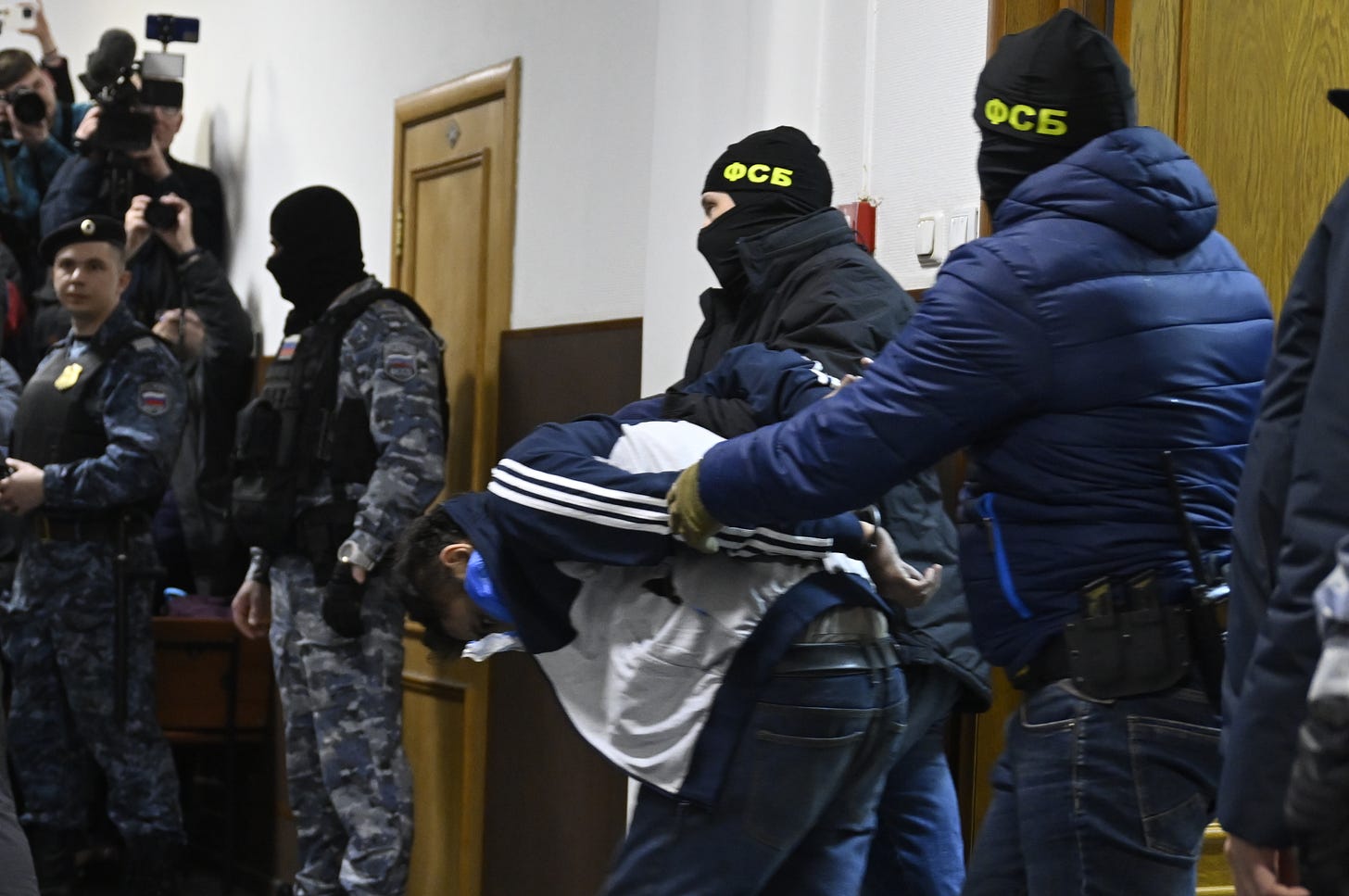DUTY TO WARN
The Moscow attack and the most crucial words in the international intelligence community

It took the American media only a few days to cite the phrase “duty to warn,” today arguably three of the most revered words in the intelligence community’s lexicon. When invoked, they require specific information about an imminent terrorist attack to be forwarded to vulnerable and threatened nations, including Russia and Ukraine. The US duty-to-warn obligation even extends to other potential adversaries such as Iran, with that government having a similar obligation to warn all. The requirement doesn’t include operations run by either nation.
This American intelligence community passed a warning of a possible attack involving religious extremists from Pakistan, Tajikistan, and Uzbekistan eighteen days in advance of the Moscow concert hall assault that killed at least 137 people and injured more than one hundred. Such a warning invariably comes from intercepts from the National Security Agency and agent reports from the Central Intelligence Agency.
The Americans did their job but the Russian intelligence community, heeding its boss, did not. President Vladimir Putin publicly called the warning “provocative statements” three days before the attack, and the Russian security services ignored it. They bear responsibility, in the view of American intelligence experts, for failing to do what was necessary to protect the concertgoers.
Keep reading with a 7-day free trial
Subscribe to Seymour Hersh to keep reading this post and get 7 days of free access to the full post archives.



